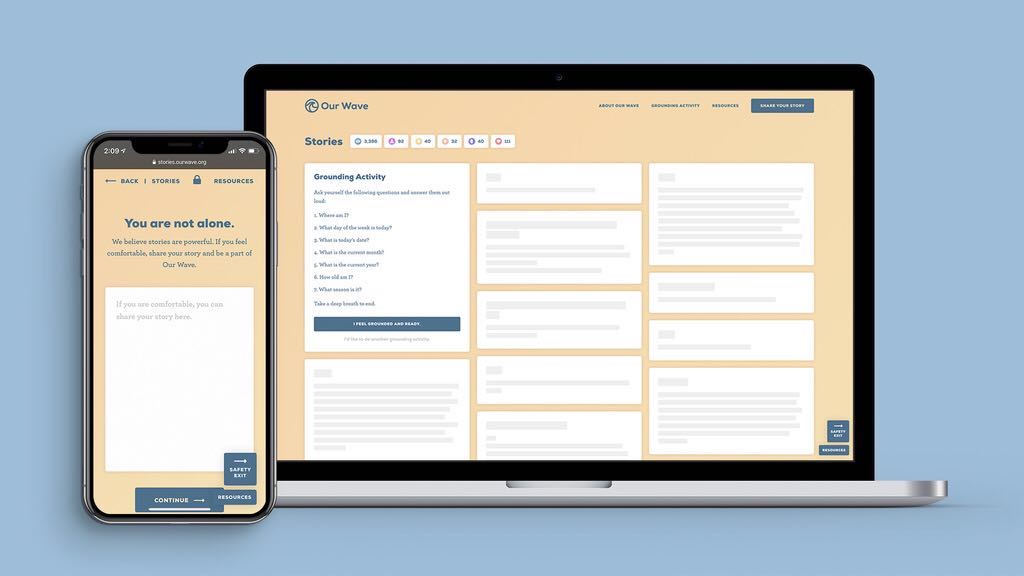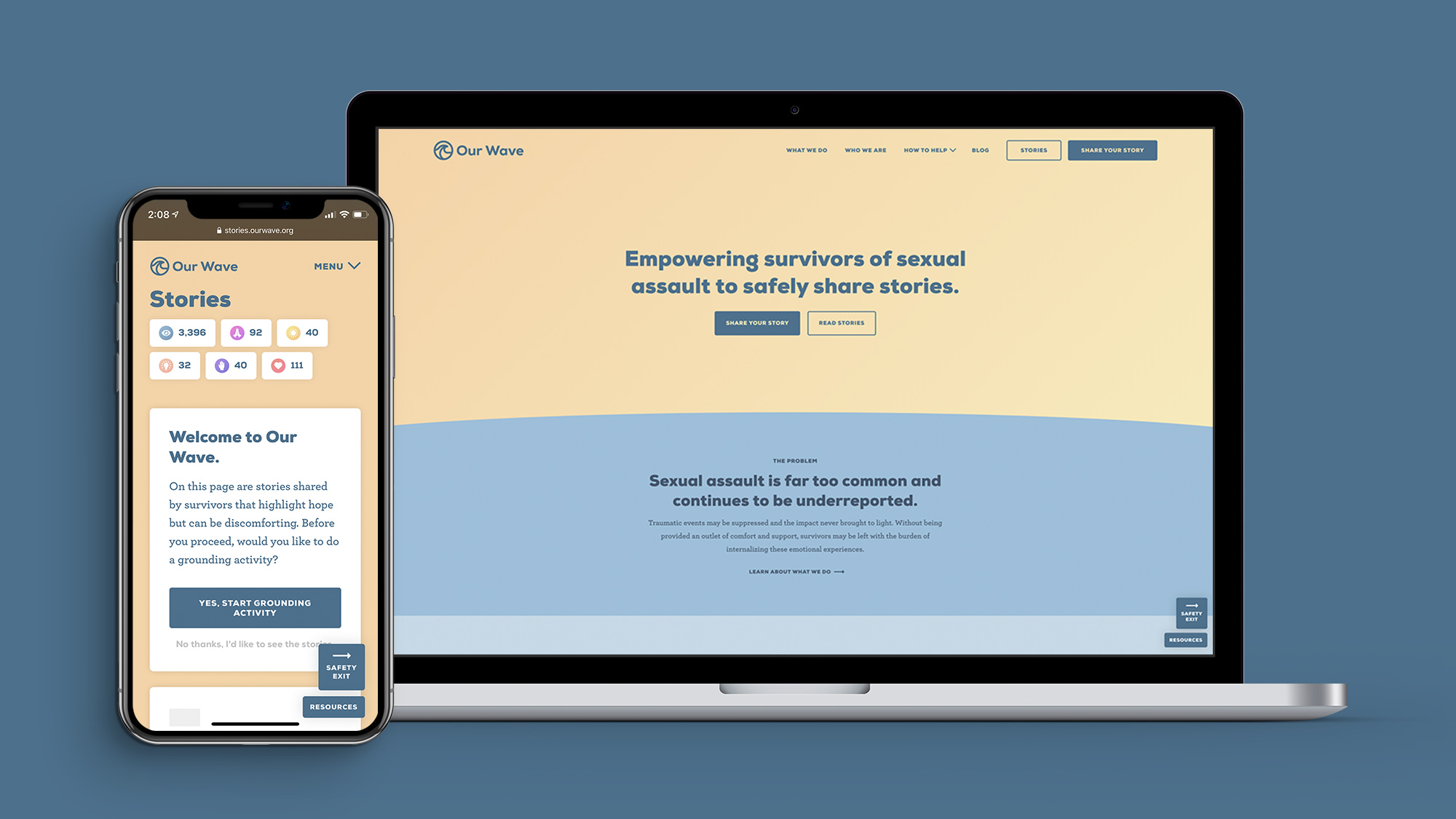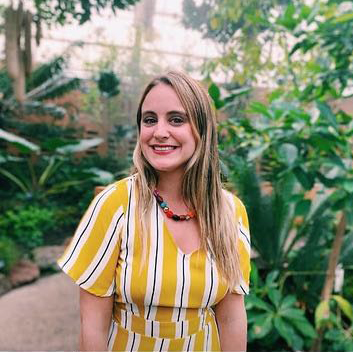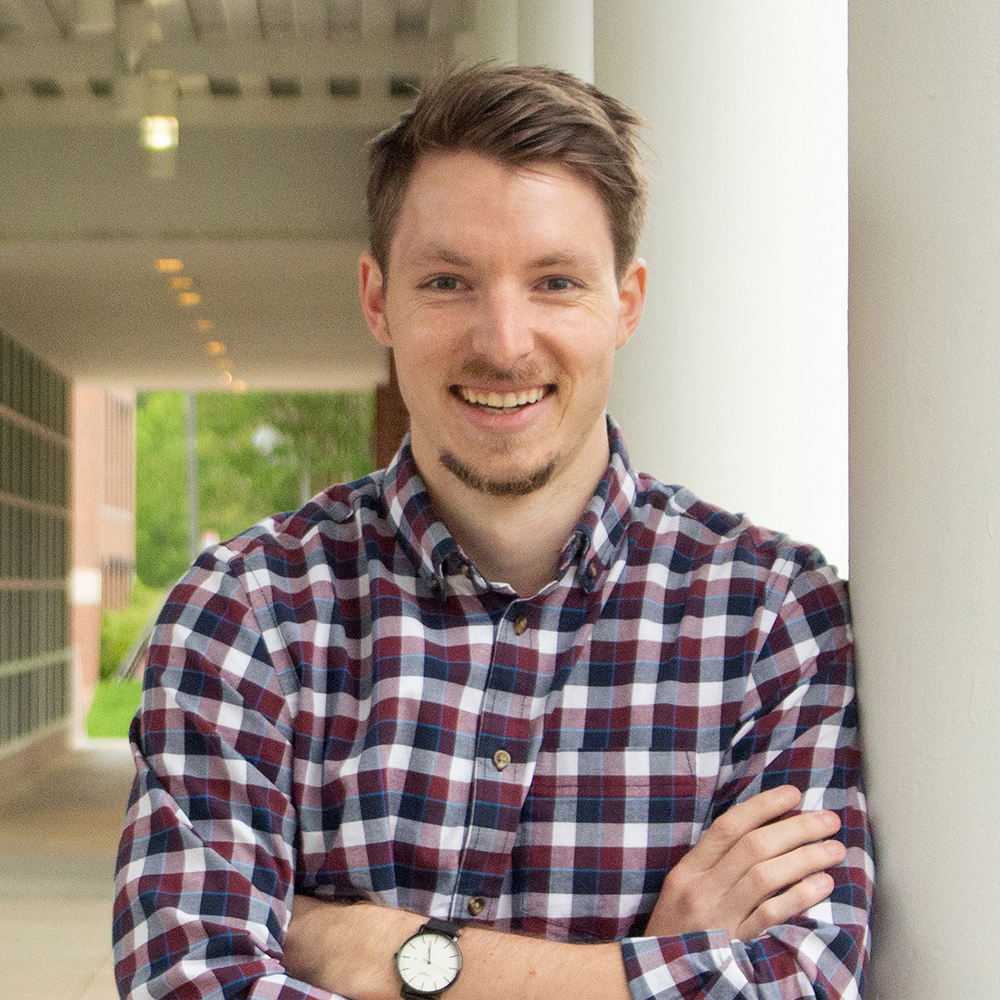Summary
Our Wave is a recently formed 501(c)(3) non-profit organization and online storytelling platform that allow survivors of sexual violence to anonymously share their experiences and find community online. This article shares the experiences of the founders forming the organization to address gaps in survivor support. This article also shares survivor-centered features of the platform and future directions and implications of this organization.
Sexual violence is an epidemic impacting individuals of all genders and cultures across the globe. It is estimated that one in three women and nearly one in four men have experienced sexual violence involving physical contact at some point in their lives, bringing lasting feelings of shame, self-blame, confusion, and isolation (Smith, Zhang, Basile, Merrick, Wang, Kresnow, and Chen 2018). While many think of sexual violence as a singular event or events, the impact of sexual violence lasts well beyond the assault experience or escaping one’s perpetrator. Despite this, few survivors actually disclose or seek help after these experiences for a number of reasons including their emotional state (e.g., shame, embarrassment, guilt, and self-blame), fear of external exposure (e.g., poor treatment by the justice system, not being believed, lack of confidentiality, assailant retaliation, public exposure), and environmental factors (e.g., organizational barriers, rape myths) (Munro 2014, 19).
Disclosure is an important step of the trauma healing process, viewed by researchers as a gateway to processing and seeking help following sexually violent experiences (Ullman 1999, 343-58). With the rise of the #MeToo movement, more and more people are beginning to come to terms with their own history of sexual violence and are beginning to feel empowered to share their stories to promote awareness and help others. However, many fear publicly joining the conversation due to similar concerns listed above. This leaves many stories untold, especially those originating in marginalized populations. The lack of an anonymous outlet was a gap noticed by the founders of Our Wave, whose informal online survey taken by 265 sexual violence survivors revealed that while only 47 participants had shared their written survivor story with others, 181 would like to share their story anonymously online. This gap was also noticed by Dr. Laura Sinko though her research, when a sexual violence survivor said to her:
“Recently, especially with more women talking about what has happened with them, I have had times where I’m like, ‘Maybe I should post about it, or share, or say something,’ but then I have a feeling like ‘No, don’t do it’. I’m afraid of what people would say, like ‘Oh, you just had some bad sex, that’s not assault’…And then, I don’t know, just embarrassment, like having family members see. Like, I don’t know if I want to open that up to people, but I kind of have a feeling like, I don’t know, it might be helpful for me.”
Our Wave was created to fill this gap by fostering a space where survivors can anonymously and safely share their stories of struggle and healing after sexual violence. Survivors who are interested in sharing their story do so through the platform’s website, with optional prompts to encourage them to additionally share what healing means to them along with a message of hope and healing to another survivor who may be struggling. The responses are then reviewed by team members who redact any identifying information, provide content warnings if applicable, and post them to the site five to seven days later. Survivors have complete control of their story, and can take it off the site temporarily or permanently at any time. Survivors also have the opportunity to read the stories of others and react to them, contributing to the website’s global impact score, eliminating the typical gratification of likes and comments given to individual posts on other social media sites.
Other important features of the platform include: virtual grounding exercises for individuals to practice before reading or sharing stories, safety exits to enable viewers to vacate the site quickly in case of an emergency, story tags to enable readers to find communities they relate to, and resource lists made available at all stages of the story sharing and viewing process to connect individuals with local and national organizations should they decide they may need additional support. What makes Our Wave truly unique, however, is its vision to use its platform to aggregate stories to be used as data for research to illuminate healing and perpetration patterns. This enables story sharing participants to contribute to a larger narrative to help others like them, while informing the future creation of prevention and intervention initiatives.


The most obvious way to track the impact of this site is through the website’s global score, listing the number of story views as well as the global reactions people have had to the variety of stories (e.g. how many users thanked a survivor for sharing their story, found hope through a story, felt inspired by a story, related to a story, or wanted a survivor to know they are not alone). Another measure of impact is the number of stories posted as well as the resulting manuscripts and interventions created from the data gathered by the organization. Our Wave has built an interdisciplinary team as well as a board of directors with expertise in advocacy, research, and survivor care to enable the group to rigorously analyze and translate the insights gained through shared survivor narratives.
Currently, Our Wave is funded by the charitable donations of individuals, corporations, and philanthropic organizations. As a newly established non-profit, Our Wave is investing in a sustainability model that is comprised of grant funding, continued personal donations, larger philanthropic commitments, and direct finances through the licensing of the Our Wave platform for corporations and other national sexual violence prevention partners. Our Wave is actively seeking partnerships with organizations that can leverage the platform within their survivor communities. Additionally, Our Wave is looking to increase its impact through discussions with funding partners (corporations, philanthropies, and individuals) who deeply care about survivors.
By providing a voice to survivors and a direct bridge to accessible online resources, Our Wave hopes to encourage survivor engagement in the healing process. Our Wave will continue to reach survivors through social media engagement, university partnerships, accessing a national network of rape crisis centers, and establishing partnerships with advocate groups at a global scale. The group already has working relationships with the National Sexual Violence Resource Center (NSVRC), North Carolina Coalition Against Sexual Assault (NCCASA), Interact, local district attorney offices, survivor advocates, national rape crisis centers, and many others. Through these partnerships, the organizations have ensured their platform is trauma-informed and have indicated their continued commitment to partnering with Our Wave. Our Wave hopes to continue to scale and grow in the upcoming year to reach a wide network of survivor support centers across the country and to build awareness and interaction with their platform.
There are many long-term implications that may result from the creation of Our Wave. Mainly, the founders hope to aggregate survivor stories in an accessible place to promote awareness, community, empathy, education, and activism in this area. Additionally, this platform fills an important gap of promoting survivor autonomy through the anonymous telling of their story without the influence, comments, or interruption of others. This can do wonders for survivors’ overall wellbeing, and the impact that will be made in survivor’s individual lives may have great ripple effects on our larger world. Finally, the power of research is the power of storytelling. Our Wave has a highly qualified research team that has the skillset to evaluate these stories to inform the scientific community and larger public of distress patterns, potential prevention strategies, and healing themes. The analysis of their de-identified data will be shared at conferences, to partnering organizations, and through the publication of scientific manuscripts to ensure they are bringing survivor voices to the table of research, policy, organization, and clinical decision-making. By creating space for survivors to tell their stories and creating an opportunity for them to reflect on their progress and triumphs, the founders of Our Wave hope to not only better understand the impact of sexual violence and how to best intervene, but also to create a community of hope and healing after these experiences.
Works Cited
Munro, Michelle L. "Barriers to care for sexual assault survivors of childbearing age: An integrative review." Women's healthcare (Doylestown, Pa.) 2, no. 4 (2014): 19.
Smith, Sharon G., Xinjian Zhang, Kathleen C. Basile, Melissa T. Merrick, Jing Wang, Marcie-jo Kresnow, and Jieru Chen. "The national intimate partner and sexual violence survey: 2015 data brief–updated release." (2018).
Ullman, Sarah E. "Social support and recovery from sexual assault: A review." Aggression and violent behavior 4, no. 3 (1999): 343-358.
Author Bios

Laura Sinko is a PhD prepared mental health nurse, sexual assault nurse examiner, and first year postdoctoral fellow in the National Clinician Scholars Program at the University of Pennsylvania. Laura has expertise in narrative and photography research methods with the majority of her research focusing on understanding recovery after gender-based violence. Currently, Laura serves at the Director of Research and Evaluation at the nonprofit organization Our Wave, an online platform for survivors of sexual violence to anonymously tell their stories. Laura has a passion for creative research dissemination to educate survivors and service providers about the healing journey.

Kyle Linton is the co-creator and Executive Director of Our Wave. He founded Our Wave to provide a means for survivors to share their stories, find healing within a supportive community, and empower change across the globe. Kyle graduated from North Carolina State University (NCSU) in 2014 with an undergraduate degree in business administration. Kyle has a background founding and leading growth stage software startup companies. Leveraging his previous experience, he hopes to grow the Our Wave platform to impact survivors across the globe.


